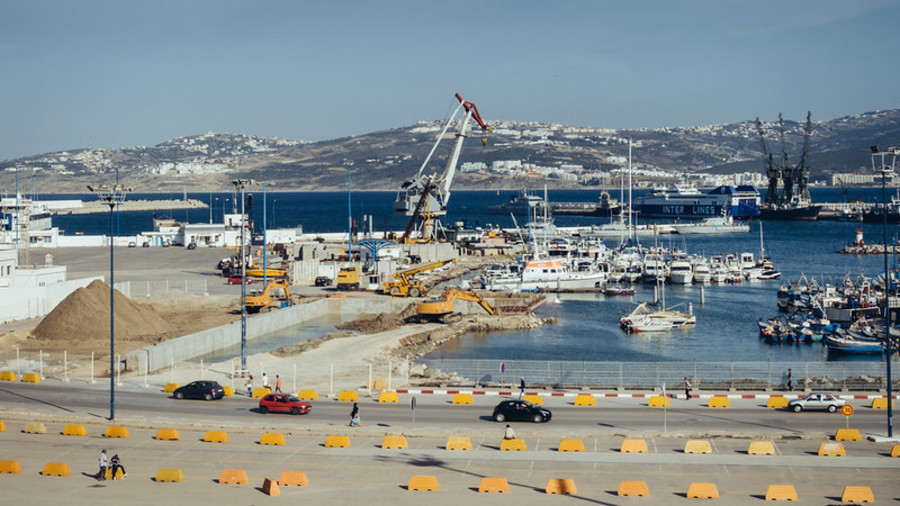Conferences and debates
Index / Activities / Conferences and debates / Investments and industrial development in the Arab countries after COVID-19
Investments and industrial development in the Arab countries after COVID-19
July 02, 202012:00 p.m
ONLINE
Casa Árabe’s Twitter and YouTube channels. #QuédateenCasa #JustStayHome
12:00 p.m
In Spanish.
Can the Mediterranean make a comeback in the “new economic normal”?
Carlos Conde (OECD), Luis Óscar Moreno (Mincotur) and Roger Albinyana
(IEMed) will attempt to answer this question during an online round
table discussion which we are hosting on Thursday, July 2 at noon.
They will also be analyzing the economic consequences which the pandemic is having on Arab countries, its impact on investments and value chains at the regional level and the transformations which this may lead to in terms of cooperation with Europe and Euro-Mediterranean relations.
Although the pandemic’s has spread less than expected up to now in the Arab countries, its economic consequences are becoming quite significant as a result of the convergence of many crises and their impact on the main ways in which these countries obtain resources: petroleum revenue, investments, remittances and tourism. Falling oil prices have led to a decrease in investment from the Gulf countries, the main investors in the region, making the forecasted decline in direct foreign investment even greater than in other regions. While the OECD foresees a 30% decrease in direct foreign investments worldwide this year, in the Arab countries this decrease may be as much as 45% according to ESCWA, reaching even higher figures in countries like Tunisia, where they will be reduced by 82.3% according to the IMF.
However, the distortions that the pandemic is causing in trade and production at the global level are also generating changes in production strategies and the way value chains are designed, moving towards models for “re-shoring” which bring these chains closer and make them deeper at the regional level. This could take the form of a change in trend, not so much towards deglobalization, but rather towards “regionalized globalization,” as it is referred to in some circles, creating opportunities for economic growth, if some regional integration processes, like the one initiated in the Mediterranean 25 years ago, are deepened and economic recovery plans are aimed at new growth models based on sustainability, knowledge, technology and industrial innovation.
In order to analyze these factors, their impact on economic relations and the new prospects opening up for Euro-Arab cooperation, Casa Árabe has organized this debate to be held by video conference on July 2 at noon.It will include the participation of Carlos Conde, Director of the Middle East and Africa Division, Global Relations Secretariat (OECD), Luis Óscar Moreno García-Cano, head of the Office of the Directorate General of International Trade and Investment (Spanish Ministry of Industry, Tourism and Trade), and Roger Albinyana, Director of Regional Policy in the Mediterranean and Human Development (IEMed). The event will be moderated by Olivia Orozco, Casa Árabe’s Training and Economics Coordinator.
You can watch the conference through our social media channels on Twitter and YouTube. #debatescasaarabe
Carlos Conde
Director of the Middle East and Africa Division at the OECD Global Relations Secretariat, where he is leading implementation of the MENA-OECD Initiative on Governance and Investment for Development. This initiative promotes dialogue on governance, policies, investments and private sector development among MENA and OECD countries. Before joining the OECD in 2007, Conde was a professor of Political Science and Public Policy at the University of Granada in Spain, a position through which he managed various projects on educational cooperation, research and network building between European and Arab universities. He was a visiting professor at Harvard University (1995-96) and Al Akhawayn University in Morocco, where he gave classes from 2001 to 2003. He has a PhD in Political Science and Public Administration from the Universidad Complutense de Madrid.
Luis Óscar Moreno García-Cano
With a bachelor’s degree in Research and Market Techniques and an Advanced Studies Diploma from the UAM, in 2008 he joined the Superior Spanish State Corps of Trade Technicians and Economists. His career began at the State Secretariat of Trade, where he was the Assistant Subdirector of International Services Trade from 2009 to 2011 and the Subdirector General of International Trade in Services and investment from 2012 to August of 2014. He has also been an advisor for Cofides and España Expansión Exterior, and was the head economics and trade advisor for the Embassy of Spain in Rabat for five years. He is currently the head of the Office of the Directorate General of International Trade and investment at Spain’s Ministry of Industry, Tourism and Trade. He specializes in value chains and investments, with a special interest in Spanish-Moroccan economic relations.
Roger Albinyana
Albinyana is the Director of the Regional Policies of the Mediterranean and Human Development at the European Institute of the Mediterranean (IEMed). He is also an associate professor at the University of Barcelona’s School of Economics (UB), where he gives classes on international political economics. He holds a Master’s degree in Economic History from the UB and the Universidad Autónoma de Barcelona. He has a bachelor’s degree in Economics from Pompeu Fabra University (Barcelona) and in Business Administration and Management from the Universidad Abierta de Cataluña. From 2013 to 2016, he served as the Secretary General for Foreign Affairs and the EU in the Government of Catalonia, being a member of the European Committee of Regions. From 2010 through 2013, he worked as an advisor and expert on private sector development for the Secretariat of the Union for the Mediterranean. He is a member of the CIDOB board and of the advisory committee of the Euro-Mediterranean Economists Association (EMEA).
Photo: Port of Tangiers (Benson Kua)

